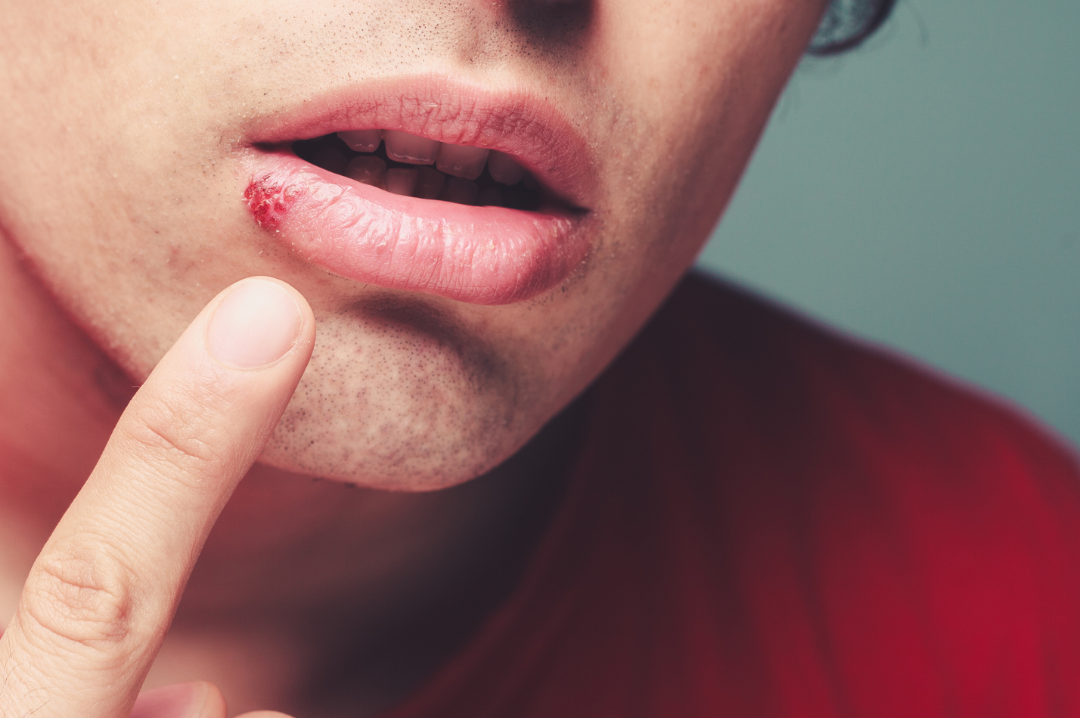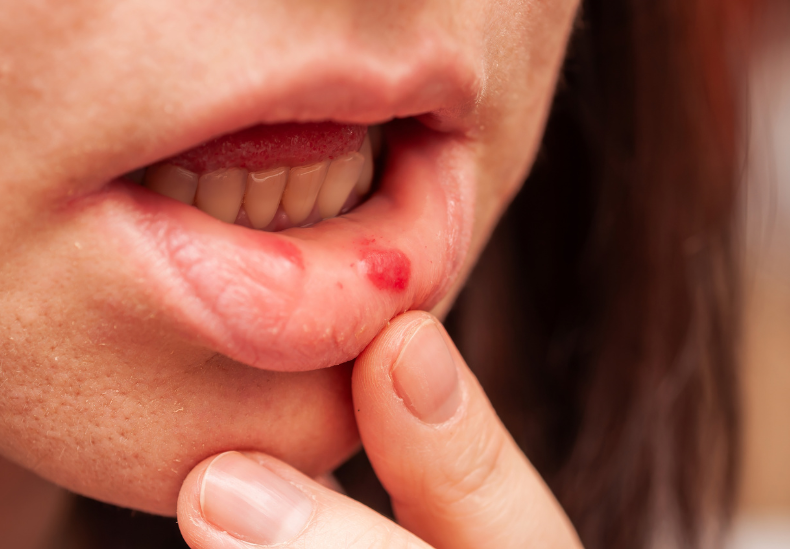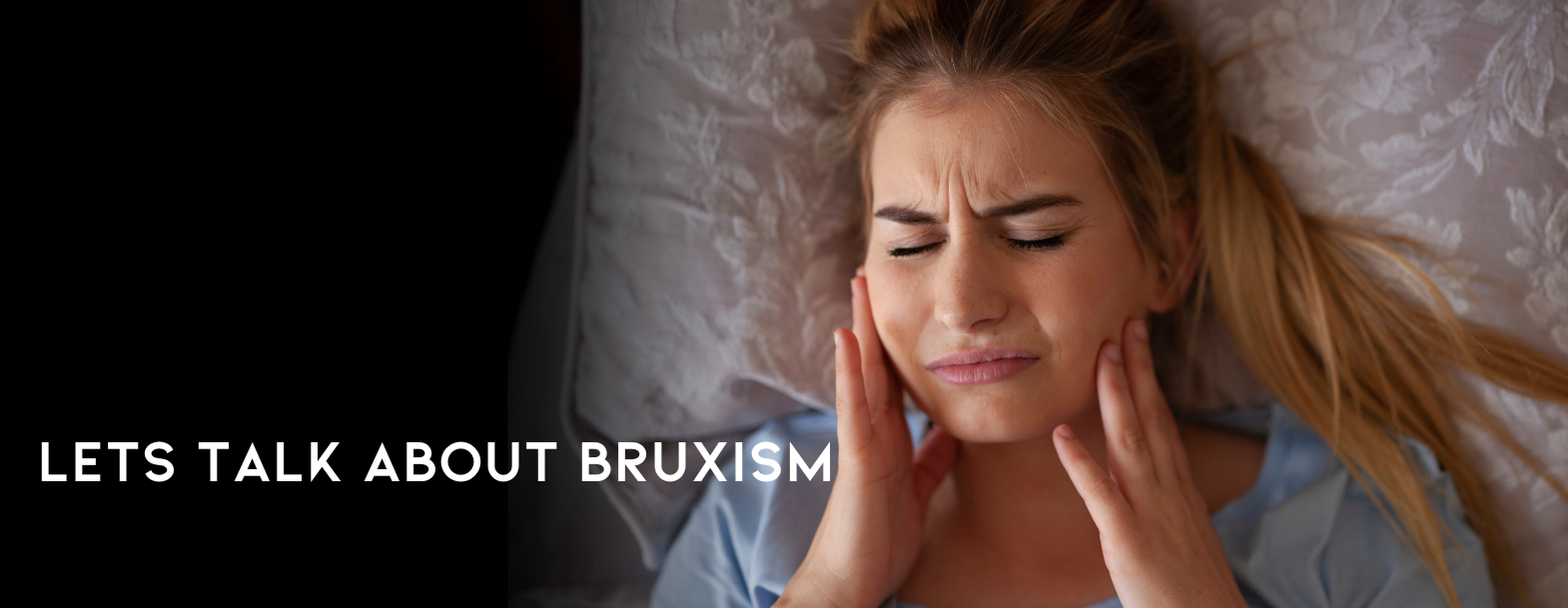Let’s Talk About Bruxism
- Home
- /
- Blog
- /
- Dental Advice
- /
- Let’s Talk About Bruxism
Have you ever woken up with a sore jaw or a mysterious headache? Or maybe your partner has (gently) mentioned that you sound like a construction site in your sleep? If so, you might be dealing with bruxism – a fancy word for teeth grinding and jaw clenching. Don't worry, you're not alone.
Have you ever woken up with a sore jaw or a mysterious headache? Or maybe your partner has (gently) mentioned that you sound like a construction site in your sleep? If so, you might be dealing with bruxism – a fancy word for teeth grinding and jaw clenching. Don’t worry, you’re not alone.
Bruxism is when you unknowingly grind, gnash, or clench your teeth. It can happen while you’re awake (awake bruxism) or when you’re off in dreamland (sleep bruxism). Some people clench their teeth when stressed, while others do it without even realizing it – like a bad habit that their jaw picked up along the way.
The causes of bruxism aren’t always clear-cut, but here are some of the usual suspects:
Life can be stressful, and your jaw might be taking the hit
Conditions like sleep apnoea can be linked to teeth grinding.
Too much caffeine, alcohol, or smoking can increase the chances of teeth grinding.
If your teeth don’t quite fit together as they should, your jaw might be working overtime

The good news? There are plenty of ways to manage bruxism and protect your teeth:
A specially made nightguard from your dentist can prevent damage while you sleep.
Relaxation techniques like meditation, yoga, or just taking a deep breath can work wonders.
Less caffeine and alcohol might mean less clenching.
Being mindful of daytime clenching and practicing jaw relaxation exercises can help.
If you have sleep apnea or another sleep disorder, treating it might reduce teeth grinding.
In the United Kingdom, bruxism is a significant concern, particularly among younger individuals. The rise in stress and anxiety levels has been linked to an increase in bruxism cases, leading to notable dental health issues in this demographic.
If you suspect you’re grinding your teeth, it’s a good idea to check in with your dentist. At Larkham House Dental Practice, we can assess your teeth for signs of wear, discuss possible causes, and recommend a tailored treatment plan to protect your smile.
So, if your jaw’s been working overtime, give us a call. At Larkham House Dental Practice, we are committed to providing comprehensive care and personalized treatment plans to manage and mitigate the effects of bruxism. If you suspect you are experiencing symptoms of bruxism, we encourage you to schedule a consultation with our experienced dental team.

If you have a cold sore, you may wonder whether it’s safe to attend your dental appointment. At Larkham House Dental Practice, we prioritise both your health and the safety of our team — here’s what you need to know.

Mouth ulcers are sores that form in the mouth and can be very painful. But where do they come from, and how do we get rid of them?
“Working with this team is always seamless and enjoyable—top marks all around”
“Thank to the dentist, dental nurse and reception staff for their care and friendliness on our last visit. Highly recommend this dental practice.”
“Great team and excellent service. Always very helpful and honest.”
“After being referred here by my old dentist for a dental implant. I ended up switching to here. So friendly, great what they do, easy to get an appointment, plenty of parking.”
“I highly recommend Larkham House dentistry. As a very anxious person & fear of the dentist, they really look after you. I had Dr V Giddani for few visits what a caring Dentist he...”
“We spent some time yesterday at Larkham House Dental Practice and received 100% treatment and care. The Reception Team, Dentist and Hygienist were excellent and we came away feeling very blessed. We look forward...”
“Never been disappointed there. Staff is friendly and they actually care. My dentist marko roberta (i think she's called), is so friendly and makes an appointment a breeze. The 2 people in the reception...”



